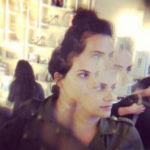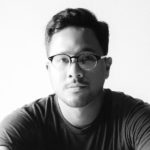(“NGO“,2016. Iraq/UK, Dr Sam Christie)
What inspired you to make this film?
I have just returned from a three month stay in the Kurdistan Region of Iraq, indeed, I’m officially a resident at the moment and am trying to go back. It was very difficult in some ways to have good friends, highly educated, articulate, compassionate, who looked after me well during my stay be regarded by many in the west as dangerous or fanatical. I am saddened by the fact that my friends in Iraq, Kurdish or Arab, who possess an Iraqi passport, have their options severely limited by the attitude of governments to the holders of these passports. That really upsets me, especially when I, as a British citizen, basically enjoy free movement throughout the world. What inspired this film, however, is a little more complex. I noticed that even in the ‘right thinking’ ranks of the NGO groups that work out in places like Iraq, there is an overriding notion that ‘these people’ need to be helped because they can’t help themselves. It was blatantly obvious to me that ‘these people’ can and do help themselves very effectively and often simply lack resources. The film I made is trying to juxtapose what I saw as the attitude held by many western charities to the people they are going to help and the reality of what is actually happening there.
What do you want American audiences to know about this film or about the subject matter?
I think in any film I make in the future in the Middle East and, of course, this film is trying to show that Iraqis, Syrians, Iranians etc, etc, are exactly the same as us. I know it’s a prosaic point, maybe oft repeated, but it’s clear to me that my friends: Christian, Muslim, Yazidi or are not different in their aspirations, dreams, loves or anything else to anyone else in the world. I hate that it’s such a simple point, but it matters hugely. People are people and while THAT might be simplistic, what that materially means when dealing with situations over there is that things get extremely complicated. Maybe what I wish in the US, but also in Europe (all over the world) is that when people think about the problems or issues in the Middle East, that they apply a lens filter that makes them see themselves in that situation first. Also, please be open to the fact that people are complicated, which makes these situations similarly complex.
Is it difficult to make films in your home country? Why or why not?
Well no. I live in the UK really. I may well spend the rest of my life in the Middle East, but I can always come back to the UK to make a film. Over in Kurdistan it’s pretty liberal regarding restrictions, however, the Assayish (security services) generally don’t like people wandering about filming things as they please. I had to be pretty careful about filming and I also had to up my own self-awareness as a filmmaker a little, given that I was bounding about in a different country to my own brandishing a camera. Then you have a whole different set of considerations. The key for me is always to attempt to have maximum respect at all times. Plenty of times this has meant a compromise that I wasn’t happy with, but things have to be done ethically.
Is there anything else you want us to know about you as a director or about your film?
I have written a Ph.D project essentially on ethics and documentary film. I think that it is extremely important that documentary filmmakers recognise the responsibility they have. Being able to command that position is not a God given right. Oh, and big cameras look quite a lot like rocket launchers, microphones resemble knives; as filmmakers we often find ourselves pointing these objects at people.
“December 2016”
Disclaimer: Please note that most artists, filmmakers and authors presented by FCI are not native speakers of the English language. To avoid misinterpretation, it is FCI’s policy to print their responses as received without structural or content changes.

